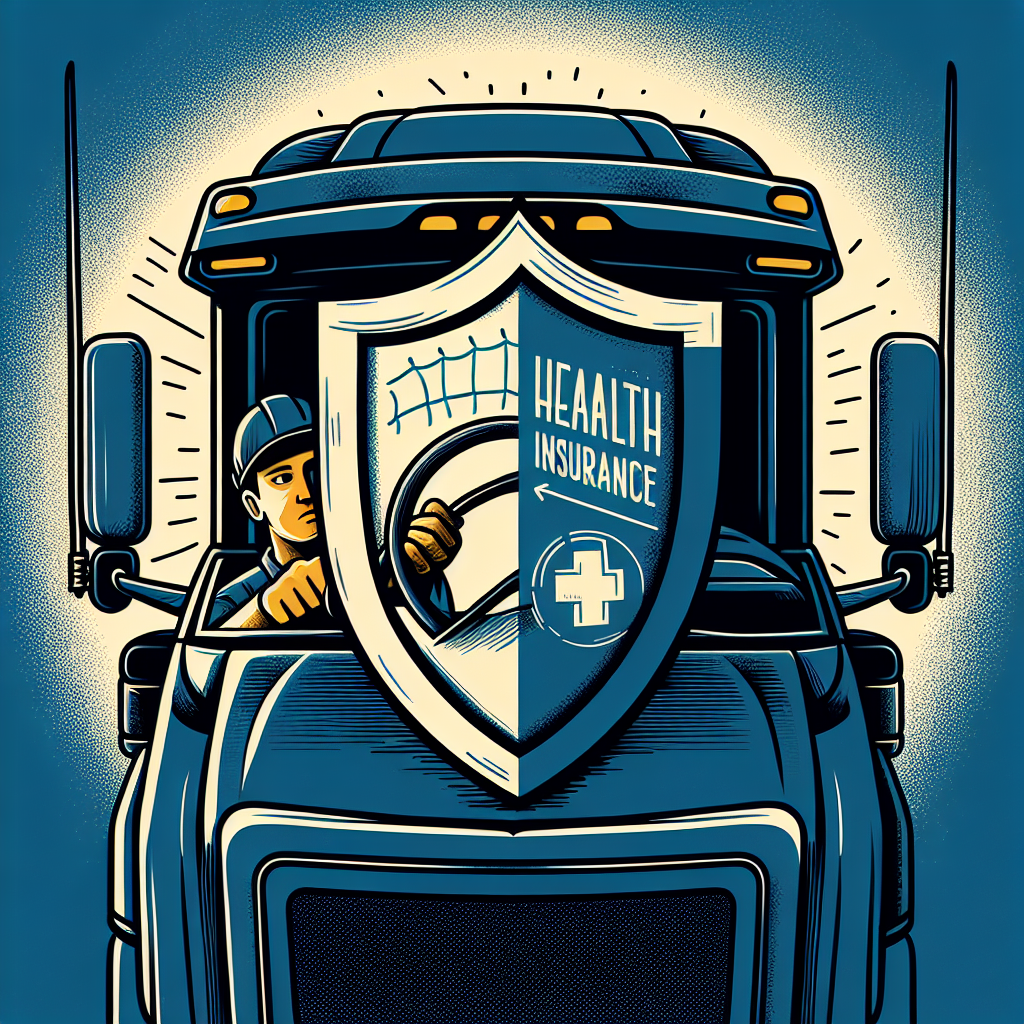Filed under Health Insurance on
Health Insurance Tips for Owner Operator Truck Drivers

Managing health insurance as an owner-operator truck driver can be a road filled with twists and turns. Unlike typical employees, owner-operators shoulder the responsibility of securing their own insurance coverage. However, with careful planning and expert insights, navigating this landscape can become significantly smoother. This article delves into essential health insurance tips focused specifically on owner-operator truck drivers, providing them with the knowledge needed to protect both their health and finances. Whether you're just starting your trucking business or looking to re-evaluate your current health plan, these strategies will guide you effectively.
Understanding the Importance of Health Insurance
Health insurance isn't just a safety net; it's a crucial component of a comprehensive financial plan for truck drivers. For owner-operator truck drivers, the risks associated with long hours on the road can amplify the need for reliable health coverage. Beyond accident-related injuries, extended periods sitting behind the wheel can lead to chronic conditions such as obesity, back pain, and cardiovascular issues.
Identify Your Health Insurance Needs
The first step in securing the right health insurance is to understand your individual needs. Every truck driver’s situation is unique, based on factors like age, medical history, family needs, and financial situation. Consider whether you need individual or family coverage, the frequency of required doctor visits, and whether you have any existing health conditions that need regular attention.
- Individual vs. Family Coverage: Consider whether you need a singular plan or coverage that includes family members.
- Chronic Conditions: Evaluate whether your job predisposes you to certain health issues that require regular medical attention.
- Emergency Coverage: Assess how frequently you're on the road and the importance of having national coverage.
Explore Your Health Insurance Options
Once you've identified your needs, begin exploring the wide range of options available. Here are some of the most common health insurance avenues for owner-operator truck drivers:
- Marketplace Insurance Plans: The Affordable Care Act (ACA) allows individuals, including owner-operators, to shop for insurance plans through federal or state marketplaces. These plans come in four tiers – Bronze, Silver, Gold, and Platinum – with varying levels of coverage and costs. Assess and compare to find a plan that aligns with your specific needs and budget.
- Health Savings Accounts (HSAs): For drivers who opt for high-deductible health plans, HSAs offer a way to save money tax-free for medical expenses. They can be a valuable tool in managing out-of-pocket costs while also providing some tax advantages.
- Professional Associations: Various trucking associations offer health insurance plans to their members. Joining organizations like the Owner-Operator Independent Drivers Association (OOIDA) can provide access to group health coverage options not typically available to individuals.
- Private Insurance Companies: Directly purchasing insurance from providers can also yield policies tailored to your needs. Don't hesitate to shop around and request personalized quotes.
Evaluate Costs and Coverage
Balancing cost with adequate coverage is a pivotal aspect of selecting health insurance. The cheapest plan is not always the best choice. Consider the following when evaluating plans:
- Premiums: The amount you pay monthly whether you use services or not.
- Deductibles: The out-of-pocket costs before your insurance starts to pay.
- Co-pays and Co-insurance: These costs are what you pay during each doctor visit or medical service.
- Out-of-pocket Maximums: The maximum amount you'll spend in a year, after which the insurance pays 100%.
Understand Policy Terms and Conditions
Before making a decision, thoroughly read the terms and conditions of the insurance policy. Key points to verify include:
- In-network vs. Out-of-network: Understand which healthcare providers are included in the plan's network to avoid unexpected costs.
- Covered Services: Ensure the plan covers essential services like emergency care, prescription drugs, and specialist visits.
- Exclusions: Be aware of what isn't covered. Certain plans may have exclusions that could impact your coverage seriously.
Leverage Technology for Better Management
Technology can be a boon for managing health insurance. Use digital tools to streamline claim submissions and manage appointments and prescriptions. Many insurance providers offer apps to track your healthcare usage and benefits effectively. Plus, consider wearable technology to monitor your health proactively, potentially reducing healthcare needs over time.
Stay Informed on Industry Trends and Changes
The health insurance landscape is continually evolving. For owner-operator truck drivers, staying updated on regulatory changes, such as shifts in the Affordable Care Act, can significantly impact available options and costs. Subscribe to industry newsletters and forums to keep informed about new policies, insurance products, and health trends affecting the trucking industry.
Seek Professional Advice
Given the complexities of health insurance, seeking professional guidance can be invaluable. Insurance brokers can provide personalized assistance, and financial advisors can offer strategies that align with your broader financial goals. Additionally, networking with other trucking professionals can reveal insights and experiences that guide your decision-making process.
Review Your Health Insurance Regularly
Your life and health circumstances evolve over time, and so should your health insurance. Reviewing your plan annually to ensure it still meets your needs is crucial, especially if significant life changes occur, such as marriage, the birth of a child, or major career shifts. Such reviews ensure that your protection adapts along with your life.
Conclusion
Health insurance for owner-operator truck drivers is an essential investment in both health and financial stability. By understanding your needs, exploring various options, evaluating costs, and keeping informed on industry changes, you can make knowledgeable decisions. Leverage technology, seek professional advice, and regularly review your coverage to ensure your health care practices are as safe and efficient as your driving. With these strategies, you can confidently navigate the complexities of health insurance and steer your business towards a secure and prosperous future.





